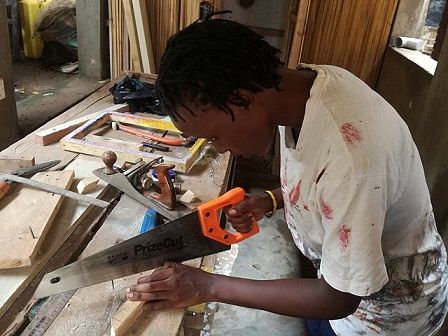New figures from the Education Ministry reveal that in just one year some 27 percent more women have secured an apprenticeship with a building firm.
In the first eight months of 2018 there were 467 female apprentices who had signed an agreement with a construction firm.
This hitherto male bastion is seriously coming under siege, and it is especially in the fields of carpentry and cabinet-making that women have really come far.
A new chip off the old block
Regarding apprentice carpenters, this year there were 42 women – a 40 percent jump on the year before, and 33 women apprentice cabinet-makers – an increase of 73.7 percent.
“There are a number of young women who’ve started a training course, so then other young women can see that this actually could be an opportunity,” said Louise Pihl, the deputy head of the Danish building companies’ interest organisation Dansk Byggeri, to DR Nyheder.
“It’s very very positive, and we can only hope that it continues,” she added.
Role models needed
Having other women as role models makes a difference, said Maja Christensen, a female bricklayer.
“I can only speak from personal experience, but the first time I worked with a female journeyman it was really something else. I had someone I could mirror myself on,” added Christensen.
And the new recruits are much-needed. Dansk Byggeri estimates that because building projects are taking off again thanks to economic prosperity in Denmark, there will be a shortage of around 17,000 trained workers in 10 years.
“It is very important that firms live up to their responsibilities and train up both men and women while the building boom lasts,” says Pihl.














